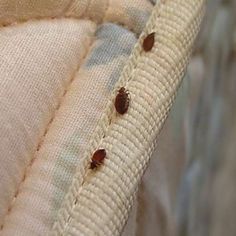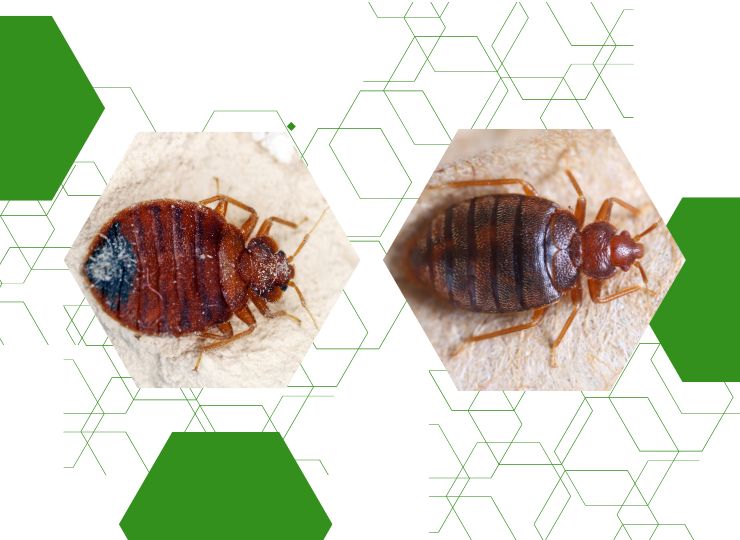Explore the Various Sorts Of Bug and Their Treatment Options for Effective Administration
The management of insects in both household and agricultural setups necessitates a comprehensive understanding of the different kinds that can get into these environments, as well as the treatment alternatives readily available for effective control. From house rodents that pose health dangers to garden bugs that intimidate plant yields, each category demands a tailored technique. Recognizing the subtleties of pest behavior and the matching treatments is important; nonetheless, the question remains: what are the most effective strategies that not only deal with existing invasions however likewise avoid future incidents?

Typical Home Pests
Although house parasites can differ considerably in type and actions, numerous share common features that make them an annoyance. Common house insects consist of rodents such as mice and rats, insects like roaches and ants, and occasional intruders such as spiders and flies. These bugs typically thrive in settings that offer very easy access to food, shelter, and water, making homes specifically susceptible.
Rats, for instance, are infamous for causing architectural damage and spreading illness. Pests like cockroaches are not just disturbing but can also cause allergic reactions and asthma in delicate individuals.
Reliable insect administration starts with prevention, that includes sealing entry points, preserving tidiness, and using proper storage space methods for food. Keeping an eye on for indicators of problem is essential, as early detection can avoid a lot more significant issues. When problems occur, numerous control methods exist, ranging from traps and lures to specialist elimination services. Comprehending the behaviors and features of these typical household insects is crucial for reliable monitoring and maintaining a healthy and balanced living setting.
Garden Insects and Their Impact
Yard insects pose a substantial hazard to the health and productivity of plants, with some price quotes suggesting that they can cause as much as 40% of crop losses in specific regions. These parasites, which consist of bugs such as caterpillars, aphids, and beetles, along with nematodes, can inflict extreme damage by preying on plant tissues, resulting in stunted growth, minimized yields, and endangered quality.
The impact of yard parasites prolongs past mere visual concerns; they can interrupt ecosystems by changing food chains, impacting pollinators, and spreading illness amongst plants. For instance, bugs like the crawler mite can compromise plants, making them extra susceptible to fungal infections. In addition, invasive types may outcompete indigenous flora, bring about biodiversity loss.
Efficient monitoring strategies are vital to minimize these hazards. Integrated Pest Administration (IPM) methods, which incorporate organic control, social techniques, and targeted chemical applications, can offer sustainable remedies. Regular monitoring and early intervention are important in protecting against problems. bed bug heat treatment. By understanding the specific pests and their behaviors, gardeners can execute targeted treatments that not only safeguard their plants however additionally promote a healthier garden environment.
Rodents: Identification and Threats
Rodents prevail yard bugs that can posture significant risks to plant health and wellness and general ecological community security. These little animals, consisting of types such as voles, computer mice, and rats, are typically identified by their sharp incisor teeth and robust bodies. Their fur coloration varies widely, varying from gray to brownish, and they usually show a lengthy tail which help in balance and dexterity.
The threats related to rodent problems are diverse. They can trigger comprehensive damage to plants and gardens by gnawing on stems, origins, and fruits, which can lead to substantial economic loss for garden fly control enthusiasts and farmers. Rats are infamous for their function as vectors of numerous diseases, consisting of hantavirus and leptospirosis, which can be sent to people and pet dogs (bed bug heat treatment). Their droppings and pee can pollute dirt and water sources, intensifying health risks.
Additionally, rats can interfere with the natural balance of neighborhood ecological communities by this contending with native wild animals for sources. Their delving behaviors can lead to soil erosion and destabilization of plant roots. Very early recognition and understanding of rodent habits and dangers are vital for reliable parasite monitoring.
Effective Treatment Methods
When handling rodent infestations, utilizing efficient therapy techniques is vital for minimizing damage and health and wellness dangers. Snap catches and electronic traps supply a quick and humane way to remove rodents, while adhesive traps can aid monitor activity degrees.
Secondly, lure stations containing rodenticides can be purposefully positioned in locations of high rodent activity. These stations should be tamper-resistant to guarantee the safety and security of non-target pets and youngsters. It is important to pick the ideal bait kind, as rodents can create bait aversion otherwise transformed periodically.
Along with traps and lure, sealing entrance points can dramatically reduce the possibilities of re-infestation. This entails evaluating and fixing gaps in wall surfaces, windows, and doors.
Last but not least, professional insect control services can be valuable for extensive infestations. They possess the experience, devices, and items needed for reliable eradication and can develop a tailored management strategy. By implementing these therapy approaches, home owners can efficiently deal with rodent problems and safeguard their health and wellness and home.
Preventative Procedures and Tips

Preserving sanitation is similarly content critical; guarantee that food is saved in airtight containers and immediately tidy up spills or crumbs. Consistently getting rid of waste and guaranteeing that compost heap are managed appropriately can deter parasites from being brought in to your home.
In addition, think about landscape design practices that prevent rodent habitation. Trim greenery and keep mulch far from the structure of your residential or commercial property, as these can supply concealing places for pests.
Final Thought
Effective parasite monitoring requires a detailed understanding of different insect types and their details therapy options. Ultimately, an aggressive position on insect management fosters a much healthier setting, securing both property and agricultural spaces from pest-related obstacles.
Typical household parasites consist of rodents such as rats and computer mice, insects like cockroaches and ants, and periodic invaders such as spiders and flies.Rats are typical garden pests that can present significant dangers to plant health and total environment stability. Early recognition and understanding of rodent habits and threats are vital for effective bug management.
Efficient pest administration begins long before a problem occurs, with aggressive measures that can dramatically decrease the likelihood of rodent entrance and habitation.Effective bug management requires a thorough understanding of various bug kinds and their particular therapy alternatives.